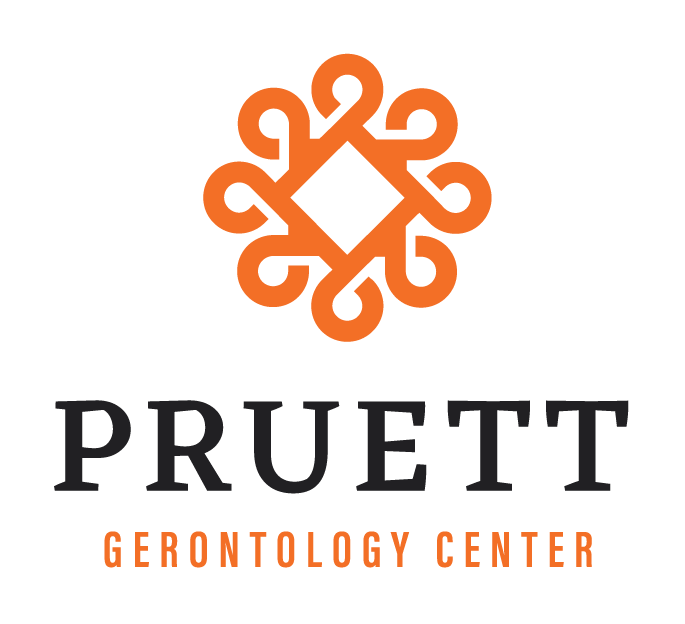Hello from Austin! This week is the annual meeting of the Gerontological Society in America and I’m here learning and getting ideas for future workshops, class projects, and research. In addition to attending sessions around becoming an Age-Friendly University, the role of stress and discrimination in early life and poor health outcomes in later life, and best practices for caregiving, I’ve also had the privilege of giving a presentation on the power of intergenerational study abroad experiences for building relationships and tearing down stereotypes. If you follow us on Facebook and/or Instagram (@pgcatacu) then you got to see how much fun we had in Germany this past summer as we studied the construction of public memory around the fall of the Berlin Wall. In case you missed it, here’s an overview of our trip and how it fits in with our educational goals as a center.
First, why take on an intergenerational study abroad trip? Part of the mission of the Pruett Gerontology Center is to prepare students for careers with older adults. One of the biggest barriers to encouraging a new generation of students to consider careers in aging are the stereotypes about aging that exist in our society. One of the best ways to educate students on the realities of aging is to facilitate activities that bring younger and older generations together to learn from each other.
Providing younger students with opportunities to interact with older adults is a proven way to increase empathy and understanding across generations. Bodiford & Whitehouse (2015) use the term intergenerativity to refer to “…fostering a meaningful fusion of conversations and experiences among often disconnected sources of human creativity like generations, disciplines or nations that inspires new possibilities and innovative actions.” (p. 1). Other researchers have found that through art they are able to bring generations together to increase understandings of older adults and their lives (Cook, Vreugdenhill, & Macnish, 2018). Additionally, research has shown that the attitudes of social work students can be positively changed after they complete service-learning projects that involve educational presentations for older adult audiences (Whitekiller & Bang, 2018). Given this information, why not harness that power of study abroad and the benefits of studying in a new place with the positive effects of intergenerational activity?
For our inaugural trip, there were a total of 13 travelers, ages 1 to 85. Of the 13 travelers, 9 were enrolled in the course 3 current students all age 21 and 6 alumni that ranged in age from their 50’s to their 80’s. Current student majors were Sociology (1) and Communication and Speech Disorders (2). All participants were enrolled in a 3 credit hour course focused on constructing collective memory of East Germany and the Berlin Wall.
Our trip began in Berlin, Germany where we did a walking tour of the city center, took a day trip to Sachsenhausen concentration camp just outside of Berlin, visited the DDR Museum, and took a bus tour around the city. From Berlin, we took a train to Leipzig where we utilized the new ACU Villa as our home base. Each morning we met for a time of discussion and then visited several museums in Leipzig. We took a day trip to Dresden and participants were given a weekend for free travel. We packed a lot in to just two short weeks!
Here are some of the things that participants had to say about our trip after being back home for a few months:
I learned so much and had the most wonderful time in Germany. The summer experience in Germany was not only educational historically, but socially. Here we were ten strangers, each having a distinct personality – there was a representative from each decade 20 through 80. What an experience! In spite of diversity and challenges we arrived at the proper location at the proper time, we laughed a whole lot, and once or twice shed a mutual tear. I am awed by the friendship bonded and the general empathy and tenderness felt among our group. It was amazing!”
“For as much work/time you, Suzanne, put into scheduling the trip, picking out the best museums/places/tours/accommodations etc…And teaching us so much @ East Germany I feel that the “little moments” were what bonded us the most on this adventure.”
“Our three young ladies…They were such a joy and I know that the future is in good hands. They are loving, considerate and most of all up to the challenges tomorrow will bring.”
“Honestly, I loved the whole trip. There wasn’t a single part that I wasn’t in love with. Some of my favorite aspects where when we would travel together as a group. Sitting on a train across from some of the people on our trip was such a treat because it was in that time, often an hour+, that you got to share your life story and see a glimpse of someone else’s. I remember doing this specifically when Ashley and I were on the train going somewhere (I think it was the concentration camp) and we just asked Jo about her life. She told us all about where she had gone and what life was like when she was growing up as well as how her life had transitioned in recent years after the death of her husband. I learned so many things there, what it meant to be a wife and a woman of God but also what it meant to be (in my opinion) a full-blown independent feminist from someone who has lived it for much longer than I have. She gave Ashlyn and me a quote that I think will be in my heart for the rest of my life saying something along the lines of: strong women, may we know them, may we raise them, and may we be them. I think the beauty of the trip and why it worked so well is the state of vulnerability due to the newness of the situation. I believe that as a group we leaned into that initial discomfort of vulnerability and that is what made us so close. We were all thrown into a new country that (most) of us had never ventured to. None of us knew the language and you were put in a group of almost all complete strangers and were told to simply do life together. It really is a crazy social experiment that Dr. Mac thought up in her head but it worked seamlessly. It created life long friendships and memories that I will never forget.“
“The most important lesson that I have learned during my time in Germany was that there are no age limits on friendships. In our group, we had a wide range of ages starting from 1 through 82, and I can tell you that age did not divide us. It actually bonded us closer together because we had six generations that brought different perspectives/ideas about historical events (post WWII and the Berlin Wall). I thought it was worth the trip alone to hear someone’s perspective about historical events that actually lived through that time period. Hearing these stories, while being in the very place these events happened, made it more relatable and sombering.
I never knew that in only three weeks, you can form some of the most precious bonds, especially with older adults. With each person, I was able to connect and establish friendships very easy. The ladies that were on the trip were very open about their lives and they always seemed happy to see us. I also looked forward to seeing them each day. This experience also solidified my desire to work with older adults, and I really appreciate how much it helped me grow and see other’s perspectives. This opportunity will occupy a special place in my heart, and I will always want to relive this experience again.”
Personally, I felt that the trip was transformative and very clearly showed how powerful relationships can be for dismantling stereotypes that we have about other groups of people. I’m thankful to work for a school like Abilene Christian University that supported this crazy experiment and the students and alumni that trusted me enough to sign up! I’m looking forward to the next intergenerational study abroad which is tentatively scheduled for the summer of 2021 in the UK.
Enjoy some of my favorite pictures from our time together!
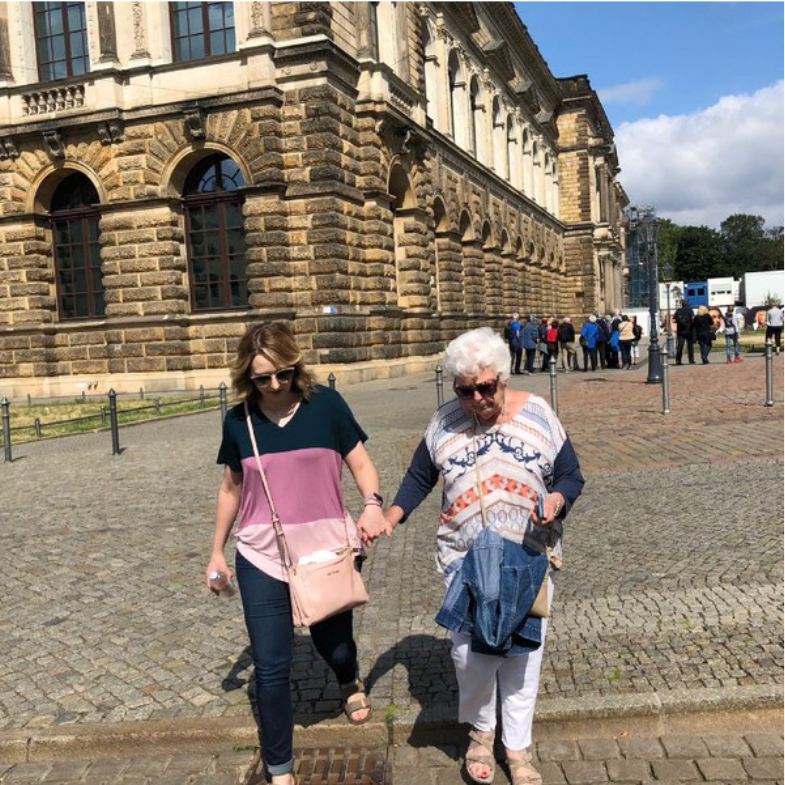
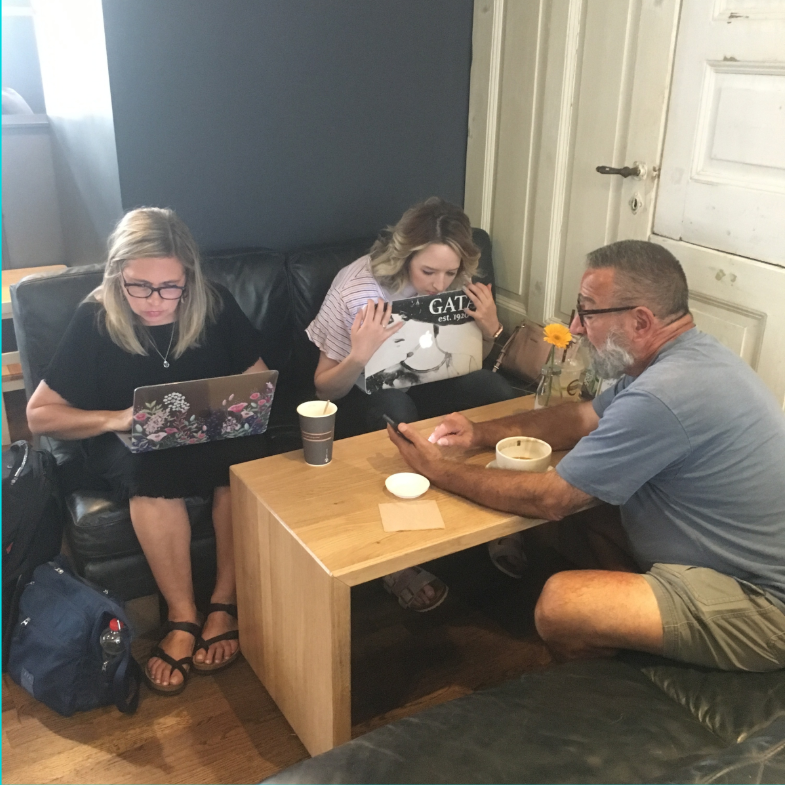
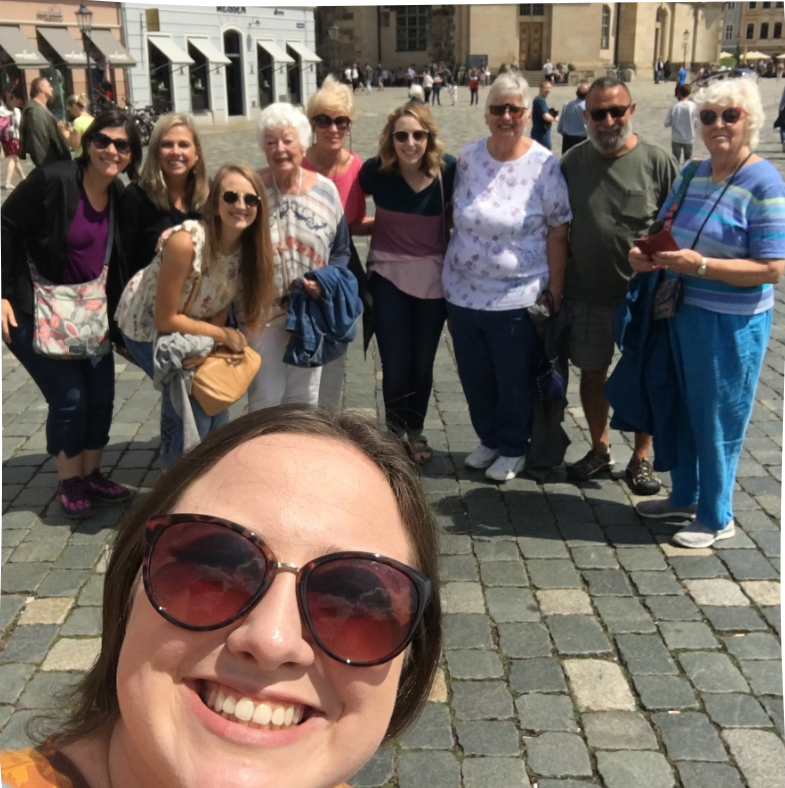
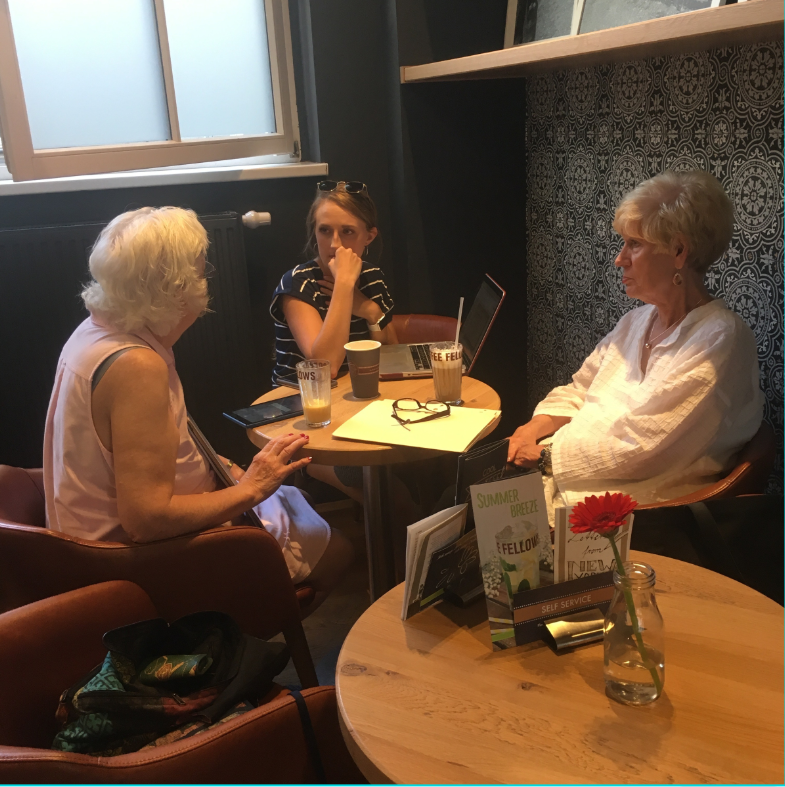
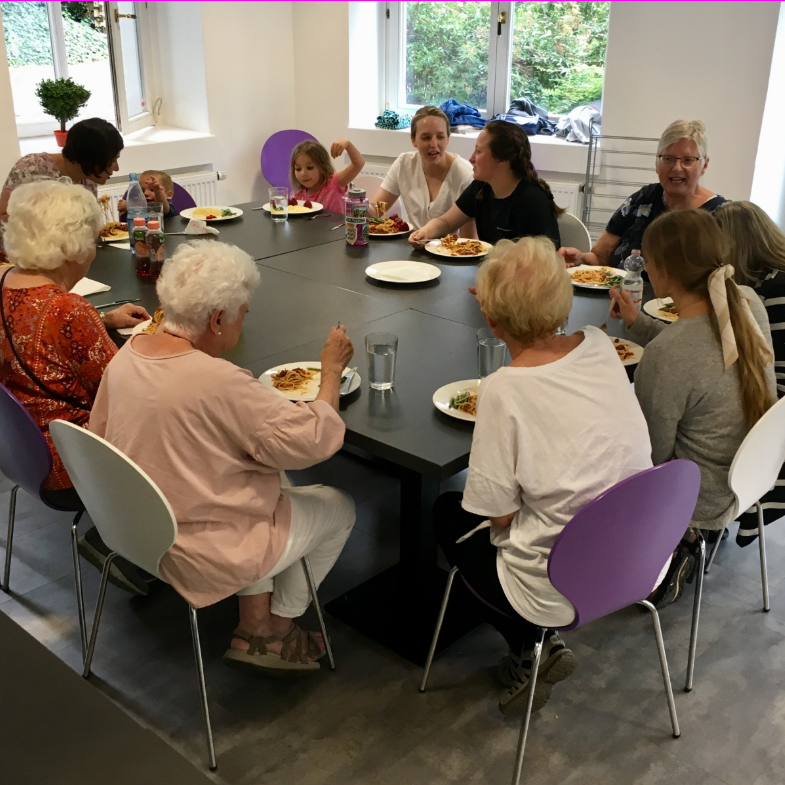
References:
Bodiford, K., and Whitehouse, P. 2015. “Creating Global Conversations About ‘Intergenerativity’ to Foster Innovation.”
Cook, P. S., Vreugdenhil, A., & Macnish, B. (2018). Confronting ageism: The potential of intergenerational contemporary art events to increase understandings of older adults and ageing. Australasian Journal on Ageing, 37(3), E110–E115. https://doi.org/10.1111/ajag.12561
Whitekiller, V., & Bang, E.J. (2018). Changing Attitudes toward Older Adults through Bachelor of Social Work Service-Learning Projects. Journal of Service-Learning in Higher Education, 7(1), 63–77.
